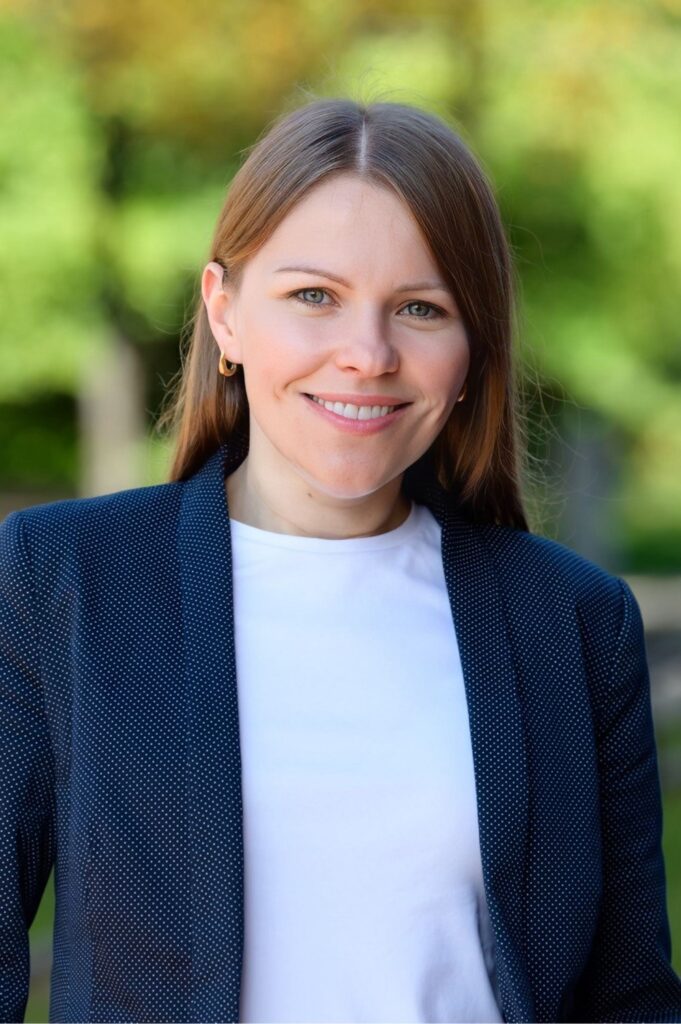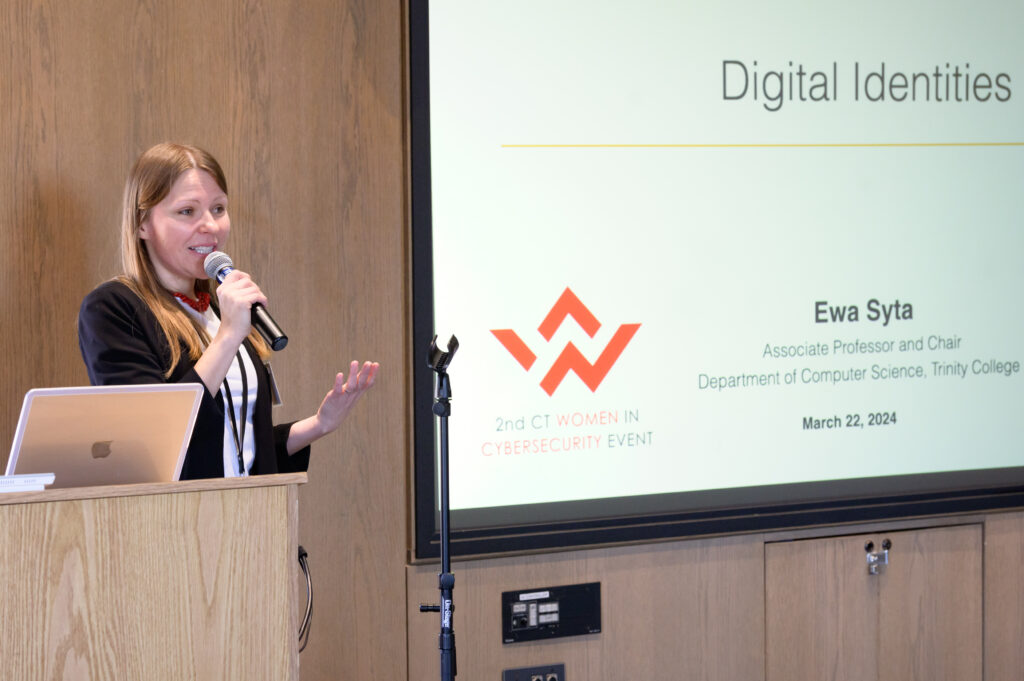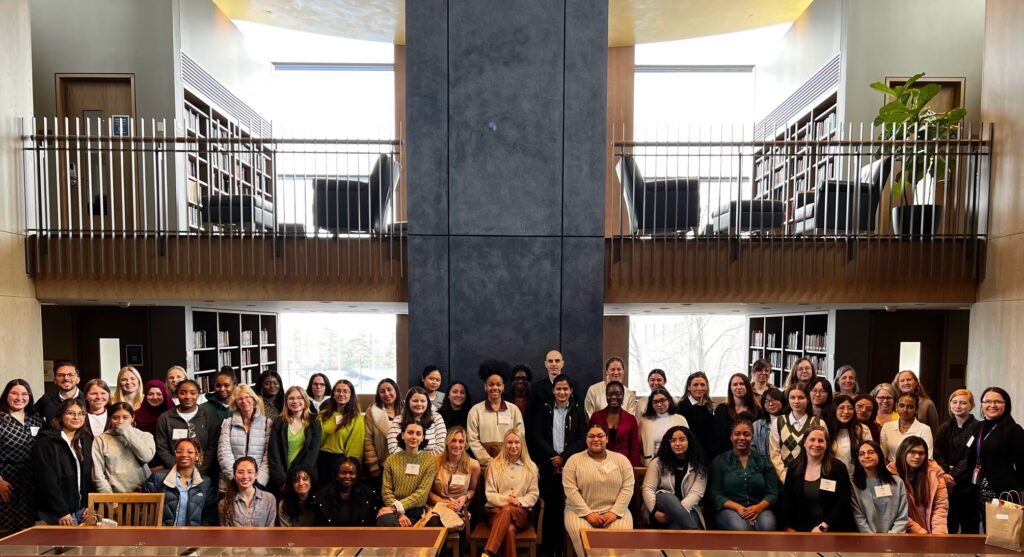Trinity Faculty Member Receives Fulbright to Conduct Research in Poland
Trinity College Associate Professor of Computer Science Ewa Syta has received a prestigious Fulbright U.S. Scholar award for 2024-25 to conduct research in her native country of Poland.

The Fulbright Program—led by the United States government in partnership with more than 160 countries worldwide—offers international educational and cultural exchange programs for passionate and accomplished students, scholars, artists, teachers, and professionals of all backgrounds to study, teach, or pursue important research and professional projects.
In collaboration with researchers at Poland’s National Research Institute (NASK) under the supervision of the Ministry of Digital Affairs, Syta plans to develop a long-term strategy for the implementation of a digital identity wallet for Poland. “This is a critical component of the EU’s initiative to create a universal digital identity ecosystem, where electronic transactions can have the same legal validity as traditional paper-based transactions,” Syta said.
In 2014, the European Union introduced the Electronic Identification, Authentication and Trust Services (eIDAS) regulation, aiming for secure and seamless electronic interactions between businesses, individuals, and public authorities. “Digital identities are one of the major challenges of the digital age; when transacting online, trust matters but it is hard to establish,” Syta said. The new eIDAS 2.0 regulation is a sweeping overhaul of eIDAS, promising to create a universal digital identity ecosystem for the EU.
The EUDI wallet, under the sole control of its user, would “hold” the identity and entitlements comprised of verified information from different sources, Syta said. “With an EUDI wallet, a user could securely prove their age without revealing any other information included in their ID, such as their precise date of birth, photo, address, etc.,” she said. While the concept of an EUDI wallet has clear benefits, Syta said it also has privacy implications, so the legislation’s security, privacy, and compliance requirements put the control of personal information entirely in the hands of the individual.
The development of this tool could have a tangible impact on society, which Syta said is something she looks forward to seeing. “It’s powerful to take research work and apply it in practice. As a professor, I often write and publish papers, but this gives me the added ability to bring the results to the public,” she said. “The long-term objective of my research is to bring cutting-edge cryptographic techniques to real-world applications to shape tomorrow’s digital world.”

This research project also aims to further diversity, equity, and inclusion (DEI) goals by focusing on closing the tech gender gap through cybersecurity action activities in partnership with NASK’s DEI team, Syta added.
In related work on Trinity’s campus, Syta recently co-hosted the 2nd CT Women in Cybersecurity Event, a collaborative initiative by Trinity College and CT State Community College. This event gave more than 50 students from both institutions the opportunity to learn from professionals in academia, industry, and government about the field of cybersecurity.
Cybersecurity focuses on protecting critical systems and sensitive information from digital attacks. The field benefits from a wide range of skills and perspectives and offers diverse career paths and opportunities, but suffers from significant talent shortages, Syta said.
The program on March 22 program featured a mix of talks on cybersecurity topics, such as vulnerability management, self-healing networks, and real-world security, as well as discussions on career paths, career advice, and networking opportunities with speakers, sponsors, professional career advisors from Trinity’s Career and Life Design Center, and other attendees. Among the speakers were representatives from the event’s sponsors (Hybrid Pathways, Fortinet, CrowdStrike, and the U.S. Navy) and from Trinity College and Connecticut State Colleges & Universities. Learn more about the event and see more photos here.
“I aim to do more than just conduct research in Poland; my goal is to deeply engage within the community, creating meaningful connections and exchanges,” Syta said. “As a Fulbright scholar, my role extends beyond academic pursuits. The program aspires for us to act as cultural ambassadors, fostering understanding and mutual respect among different cultures.”

Syta chose to conduct research in Poland for professional and personal reasons that will ultimately allow her to give back to her home country. “After earning my degree in 2007, I was able to permanently join my parents in the U.S., where I have resided ever since. As a native of Poland, my language skills and understanding of Polish culture will facilitate a smoother transition,” she said.
Professionally, Syta sought a project that aligned with her long-term research objectives and provided an avenue to leverage her expertise for a meaningful and lasting impact. “With my understanding of Poland’s socio-political context, I am uniquely positioned to ensure that we not only build a technically sound solution, but one that genuinely addresses the needs and preferences of the Polish people,” she said.
“On a personal side, I am privileged to have a rewarding career, in large part because of many amazing teachers, professors, and mentors I have had. I am grateful to now be able to pay it forward and to help bring about change for other women in technology,” Syta said.
The 10-month grant period is from September 2024 through June 2025. While she is in Poland, Syta plans to involve Trinity students in her research work at NASK and to invite Trinity faculty members and students to participate in online events.
Syta said the project supported by her Fulbright grant will allow her to grow both as a researcher and an educator. “This opportunity will provide me with valuable insights into software engineering practices and emerging technologies, enabling me to develop applied courses at Trinity, which are of great interest to our students,” she said. “As an expert in my field, my perspective has been predominantly academic. However, applying my research in practical settings will provide insights that will shape my future projects, paving the way for greater success ahead and bringing me closer to meeting my long-term research objective of addressing real-world problems with significant impacts.”
